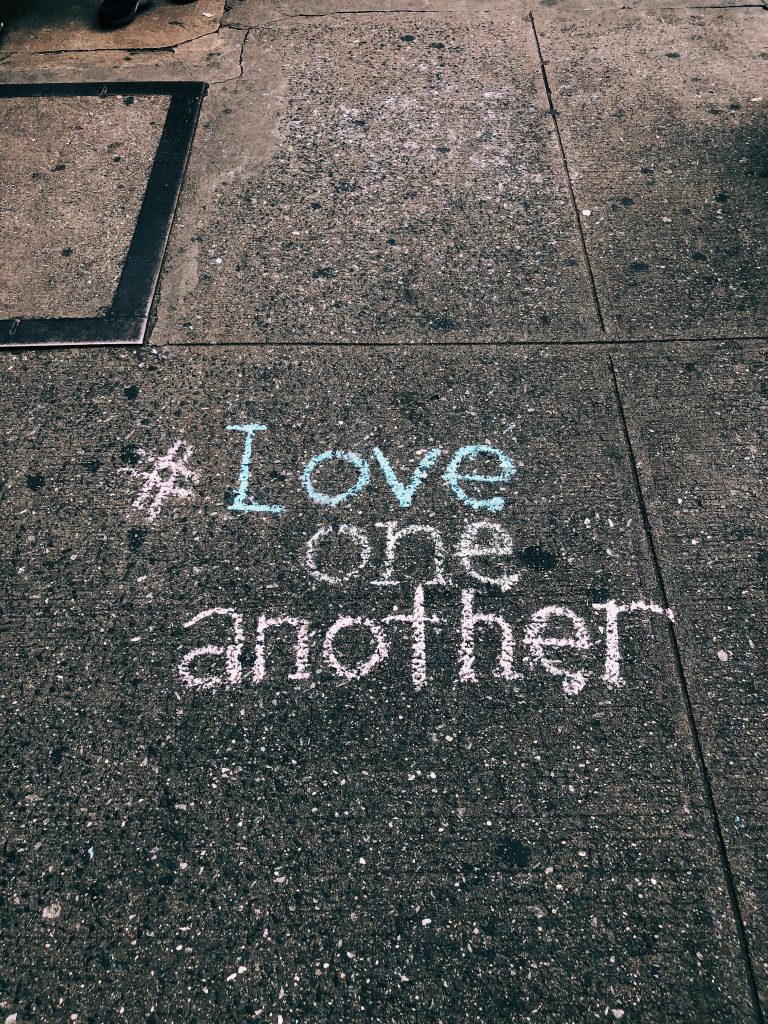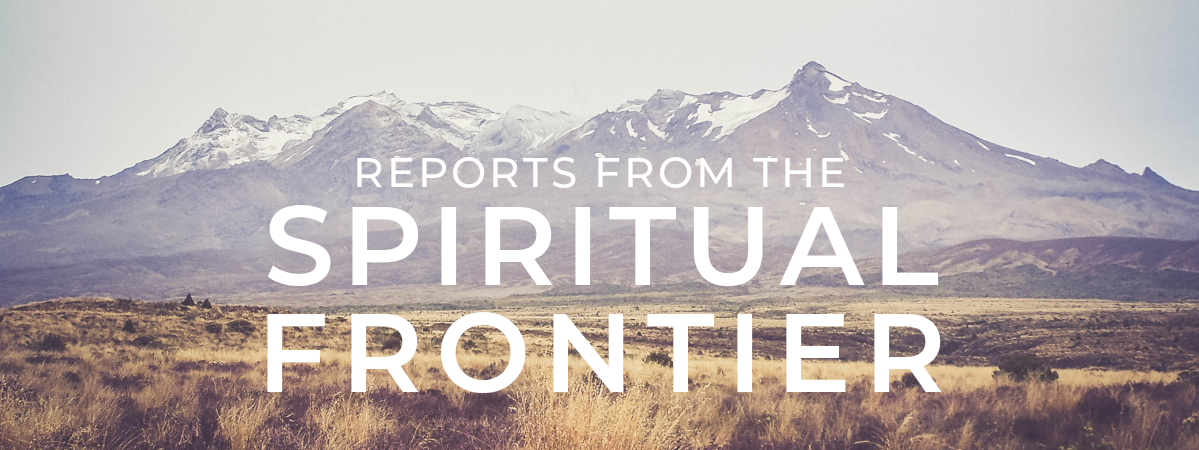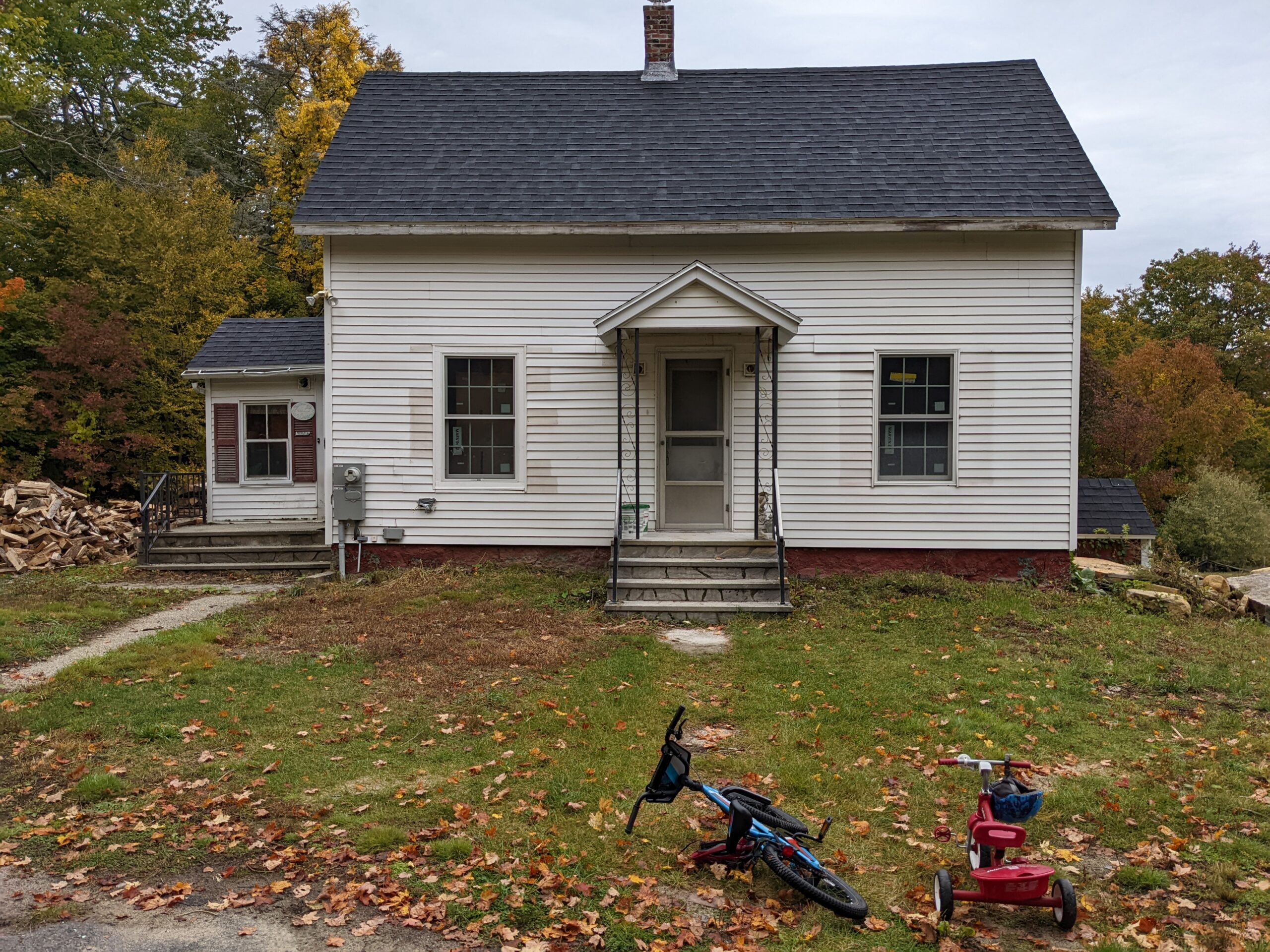[I originally wrote this as a featured article for the BTS Center’s December issue of Bearings, their online magazine. Many thanks for letting me repost!)
Every resurrection requires death. This is written into the rhythms of creation. Spring is preceded by winter. New forest growth is preceded by forest fires. Sunrise is always preceded by sunset. Rebirth comes after walking through the valley of the shadow of death. Easter Sunday comes after Good Friday and Holy Saturday. Nothing escapes this reality.
I learned this lesson about five years ago, when my church gathered for the last time to say goodbye.
This was not the lesson I thought I was going to learn when I began my work as a pastor. Like most Christians, I believed in immortality, even invincibility, before I believed in resurrection. In this spirit, fresh out of seminary, on fire with passion, captured by a beautiful vision, my wife and I set out to plant an experimental Christian community centered around serving a city, not a building or weekly worship—one of the first mainline-missional churches in the country—bolstered by the assurance that as long as we followed Jesus, nothing could really go wrong.
After all, I had been given this assurance through all my years of spiritual and professional formation. A parade of authors and presenters told us the stories of a hundred rabbits that were pulled out of a hundred ministerial hats by churches that had almost closed until they found just the right program and became vital turn around examples for the rest of us. A hundred plucky little bands of people wandered out into forlorn communities, armed with nothing but their faith, and planted churches that grew with such rapidity that it would have put Paul to shame. A thousand saints-in-the-making with deep love for God’s poor effortlessly developed world-famous programs that changed entire neighborhoods of people. Of course, the same thing would happen to you, if you were truly faithful (and hopefully bought their book as well).

Then my ideals collided headlong with reality.
I discovered in those first few years that much of the work was as beautiful as promised. We threw block parties and free markets, with thousands of people joyfully attending. We gathered for amazing Bible study over potluck food in ratty apartments in dangerous neighborhoods. We cleaned up abandoned parks and defiantly celebrated resurrection on Easter Sunday in them, chalking “Christ is risen” on long neglected sidewalks.
But much of it was far harder and far messier than we ever envisioned: filled with disappointments and dead ends, griefs and betrayals, deep hurts and lingering questions; always with the grinding pressure of long hours, and high expectations, and no money, and no end to any of it in sight, even after years of hard labor.
As my joy began to wither, as my body experienced the pain of too many gas station meals and seventy-hour workweeks, as my spirit began to shake under the relentless pressure and the unshakeable conviction that things were not going as planned, I realized two things: this work had broken me, and I didn’t know how to stop.
This is a common tale, especially for people of faith. We think that God has guaranteed our particular story a happy ending. We tell ourselves that we just need to hold on until we reach our promised conclusion. The turnaround is always right around the corner, we insist; we just need to hold on until we get there. And so, what starts as healthy persistence turns into obsession. We become the animated caricature of our own expectations, willing to do anything, try anything, sacrifice anything, just so we can keep going. We become robots in our own lives; so automated by our own habits that we lose any sense of agency, because we fear what will happen if we let go.
And that’s when the good news for us becomes not Easter, but Good Friday.
I remember the Good Friday moment for us. We had taken a month-long sabbatical, my desperate attempt to recover my health and get a break from the nearly ceaseless anxiety attacks I experienced daily. We decided that if six people would sign up for an in-depth spiritual and leadership formation class with us, then we would continue. In the end, only four did, and after receiving the final “no” on our list, I remember feeling an overwhelming sense of relief, because it meant that the work could finally just end.
Not that the ending was easy. Death never is. For us, there was no Mr. Holland’s Opus moment—just a sad little death-denying worship service, followed by nine lonely months as we packed our possessions, sold our house, and moved to an island off the coast of Maine to start over again.
In the years that followed, I learned of another grace, one even more ignored than the grace of ending. That was the grace of Holy Saturday, the day of the tomb, of sitting in the ashes.
I had never paid attention to this part of the story before. Authors, when they write books, tend to refer to these moments almost in elision. Five years can pass in a memoir through a mere paragraph: the aftermath of a divorce, of a career ended, of aimless wandering in the wilderness, a long coda where nothing seems to happen before the action begins again.
There is an advent of expectation that comes when you sit in the ashes, and that season can last for a short while or a very long one, as you learn the hard discipline of patience and keep watch for the coming of spring.
It’s hard not to attach yourself to the next great thing that comes your way. In those first two years after my church ended, I pitched multiple book proposals, started a podcast, got trained as a church planting coach, began a consulting business, developed a workshop called “The Gift of Failure” that was, in the most ironic moment of my career, cancelled due to lack of registration, and became a pastor of a dinner church. Every one of those efforts sank back into nothingness almost as quickly as they began.
And then, my health collapsed; a previously dormant chronic illness swiftly re-emerged. Sitting up in a chair, going to check the mail, or even going up a set of stairs felt like running a marathon. Without a career, without my health, my ego exhausted, I could do nothing but wait, lying in my own tomb, my whole life happening on the other side of a bedroom door.
Endings are not always easy. They’re frequently messy, open-ended, and exceptionally painful. They also don’t happen all at once. Each thread of your story eventually snaps, one after another, sometimes in quick succession, sometimes only after the weathering of the years, until you float again in space.
Space. That’s what I discovered again, sitting in my bed, having been forcibly untethered from everything that had propped my identity up. And within that space—a space that felt like death—I began to experience new life again.
I started treating my body as something other than an enemy. I fell into a community that held me as I faced the lifelong wounds that my long-automatic expectations had silenced for decades. I learned again the beauty of watching my son play, of receiving a note from a friend, of baking cookies for a neighbor; of experiencing life as good, in and of itself, regardless of what happened next.
After a while, the threads started to reknit. The anxiety, once the monster that rode my back every day, became a quiet friend. My health found its own tentative equilibrium and then bloomed again into full life, after a long-delayed visit to a specialist found a treatment that actually worked. I started to discover how calling could be rooted in something other than expectations and dreams.
It is a beginning that is still beginning. I’ve only been healthy for a couple months now, still confused by feeling better than I have in over a decade. My career is still an ambiguous mess, although more connected to a true sense of vocation than ever before. I still feel shadows of sadness whenever I visit a church for worship or gather with a group of people in my home to study scripture.
But, five years after that most beloved story came to an end, Easter has dawned in my life, and only because I accepted the grace of ending and the even greater grace of sitting in the ashes.
Let me give you permission: it is a good thing to end. It is a good thing to give up that much beloved habit that was once helpful but had gone past its season. It’s a good thing for your church to lay down its dead traditions and commend them to the community of the saints. It is good for us to release the unfinished threads of our story and entrust them to the love of God.
And it is good, when you say goodbye, to just stop, and wait, and hold space, for as long as it takes Spirit to work.

Because in that space, sitting in the ashes, like a forest after the fire, we will notice new green shoots starting to sprout up, so filled with life that we can’t help but wonder how they grew out of soil such as us in the first place.
At the end of this year, and at the end of whatever story you find yourself at: here’s to endings, here’s to the ashes, and here’s to a glorious green resurrection.






1 Comment
Thank you Ben. Beautifully written!